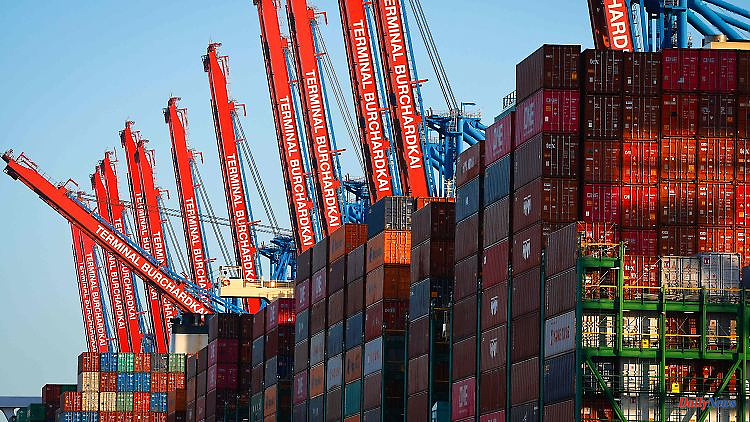Due to high inflation, German consumption will fall at the end of 2022. This is also reflected in economic output. The gross domestic product fell by 0.4 percent compared to the third quarter - and thus more clearly than initially estimated.
At the end of last year, the German economy shrank more than initially assumed. Lower consumer spending and lower corporate investments slowed the economy. The gross domestic product (GDP) fell in the fourth quarter compared to the previous quarter by 0.4 percent, as reported by the Federal Statistical Office. In a first estimate, the Wiesbaden authority had assumed a decline in economic output of 0.2 percent.
In the final quarter of 2022, high inflation primarily weighed on private consumption, which had initially supported the economy over the course of the past year after the end of the corona restrictions. As in the two previous quarters, construction investments decreased in price, seasonally and calendar adjusted terms. Investments by companies in equipment such as machinery, equipment and vehicles also fell.
According to economists' estimates, the gross domestic product should also shrink in the first quarter of the current year. "Economic output is likely to be lower again in the first quarter of 2023 than in the previous quarter," wrote the Deutsche Bundesbank in its current monthly report. This would have slipped Germany into a winter recession: if gross domestic product falls for two consecutive quarters, economists speak of a technical recession.
Because the state is relieving private households and companies with billions of euros in the case of the sharp rise in energy costs, some economists are now expecting slight economic growth for the year as a whole. The federal government recently raised its economic forecast for this year. She expects economic growth of 0.2 percent instead of a decline in gross domestic product.
In 2022, the German state spent more money than it took in. Above all, the billions in aid in the energy crisis burdened the national budget. The federal budget was particularly affected. The federal states, local authorities and social security funds all reported funding surpluses. Overall, the minus added up to 101.3 billion euros. The deficit was thus reduced by 32.9 billion euros compared to the previous year. In relation to total economic output, the federal, state, local and social security deficits were 2.6 percent. The Wiesbaden authority thus confirmed an initial estimate.
Despite the deficit, Germany once again complied with the European debt rule after two outliers in the Corona years 2020 and 2021. The European Stability and Growth Pact allows the EU states to have a budget deficit of no more than three percent and a total debt of no more than 60 percent of nominal GDP. These rules are currently suspended until 2024 due to the stress caused by the corona pandemic. The European Union (EU) is discussing a reform of the rules.












